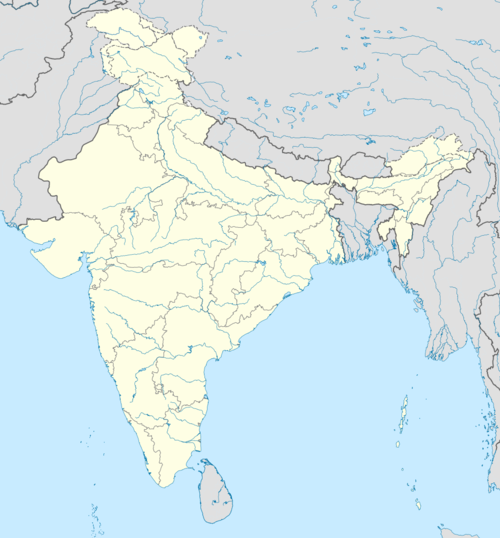Top Qs
Timeline
Chat
Perspective
2017–18 Indian Super League
4th season of the Indian Super League From Wikipedia, the free encyclopedia
Remove ads
The 2017–18 Indian Super League season was the fourth season of the Indian Super League, one of the top Indian professional football leagues. It was established in 2013. The regular season started on 17 November 2017 and ended on 4 March 2018,[1] The Playoffs began on 7 March 2018, concluding with the final on 17 March 2018. ATK were the defending cup winners from the 2016 season, however they could not advance to the playoffs. Chennaiyin won their second Indian Super League title by defeating Bengaluru 3–2 in the final.[2]
Two new sides joined the league as expansion teams: Bengaluru and Jamshedpur. The two new clubs are the ninth and tenth teams in the league. This made it the first edition of the ISL in which there are more than eight teams participating.[3] As well as expanding two teams, the league also expanded two more months, being played in five months instead of three.[3] Away goal rule is introduced in semifinals stage in this season.
Remove ads
Teams
Summarize
Perspective
Locations of the Indian Super League teams
Stadiums and locations
Expansion
On 11 May 2017, it was announced by the Indian Super League organizers that they would be inviting bids for new teams to join the league for the upcoming season.[14] The bids would be for ten cities, namely Ahmedabad, Bengaluru, Cuttack, Durgapur, Hyderabad, Jamshedpur, Kolkata, Ranchi, Siliguri and Thiruvananthapuram.[14] It was also clarified that if Kolkata were to win at least one bid for a team, the new "Kolkata" side would have to play away from the city for two seasons.[14]
On 25 May 2017, it was announced that bidding for new teams had ended and that the league's appointed external validator would look over the bids.[15] It was also announced that Bengaluru, the two-time champion of the I-League, India's top-tier professional football league, had submitted a bid.[15] Two weeks later, on 12 June, it was officially announced that Bengaluru (for Bangalore) and Tata Group (for Jamshedpur) had won the bids for the new teams.[16]
Personnel and sponsorship
Managerial changes
Roster changes
Remove ads
Overseas players
Summarize
Perspective
Unlike during the first three seasons of the Indian Super League, the 2017–18 season saw the maximum number of foreign players per team reduced to eight from 11.[53] Also unlike the previous three seasons, the maximum number of foreigners allowed on the pitch at the same time was reduced to five from six.[53]
Remove ads
Regular season
Source: Indian Super League
Rules for classification: 1) points; 2) head-to-head points; 3) head-to-head goal difference; 4) head-to-head goals scored; 5) goal difference; 5) number of goals scored; 6) fair play ranking; 6) drawing of lots
(C) ISL Cup winners
Notes:
Rules for classification: 1) points; 2) head-to-head points; 3) head-to-head goal difference; 4) head-to-head goals scored; 5) goal difference; 5) number of goals scored; 6) fair play ranking; 6) drawing of lots
(C) ISL Cup winners
Notes:
- Qualified for 2019 AFC Cup qualifying play-offs
Results
Remove ads
Playoffs
Bracket
| Semi-finals | Final | ||||||||||
| 1 | Bengaluru | 0 | 3 | 3 | |||||||
| 4 | Pune City | 0 | 1 | 1 | |||||||
| 1 | Bengaluru | 2 | |||||||||
| 2 | Chennaiyin | 3 | |||||||||
| 2 | Chennaiyin | 1 | 3 | 4 | |||||||
| 3 | Goa | 1 | 0 | 1 | |||||||
Semi-finals
Final
Remove ads
Season statistics
Summarize
Perspective
Scoring
Hat-tricks
Assists
Cleansheets
Discipline
- Most yellow cards (club): 47
- Chennaiyin
- Most red cards (club): 4
- Delhi Dynamos
- Most yellow cards (player): 9
 Dhanpal Ganesh (Chennaiyin)
Dhanpal Ganesh (Chennaiyin)
- Most red cards (player): 2
 Pratik Chowdhary (Delhi Dynamos)
Pratik Chowdhary (Delhi Dynamos)
Remove ads
Average home attendances
Remove ads
Awards
- Source: Indian Super League website
Hero of the Match
Emerging Player of the Match
Fans' Player of the Month
Fans' Team of the Season
End-of-season awards
Remove ads
See also
Notes
References
External links
Wikiwand - on
Seamless Wikipedia browsing. On steroids.
Remove ads

